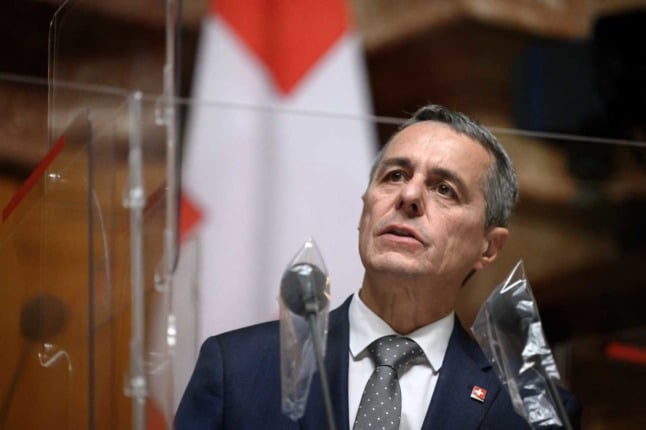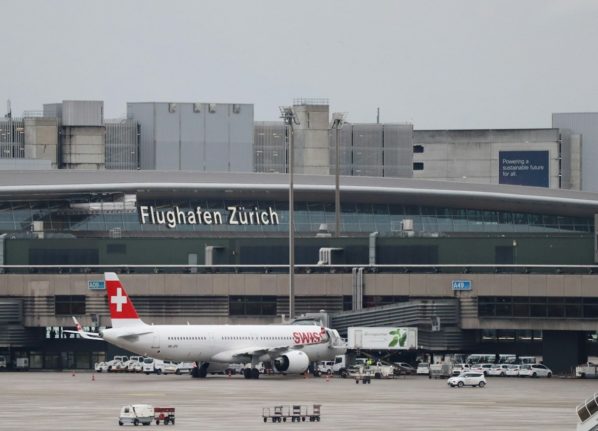Cassis, who will take on the largely symbolic role on January 1, insisted in his acceptance speech that “we will not allow ourselves to be divided”.
The choice of Cassis came as no surprise since it was his turn among the seven members of the Swiss government to take on the rotating one-year presidency.
The 60-year-old member of the conservative Liberal Party, who joined the government in 2017, will continue serving as Switzerland’s top diplomat while carrying out his presidential duties.
READ MORE: A foreigner’s guide to understanding Swiss politics in five minutes
He will replace Economy Minister Guy Parmelin at the helm. Cassis was elected with 156 out of 197 possible votes — a relatively poor score for the foreign minister, who has faced significant criticism for gaffes and inconsistent messaging.
Both he and Parmelin have been attacked for the handling of Switzerland’s relations with the European Union, after Bern in May abruptly ended years of talks aimed at sealing a cooperation agreement with Brussels.
As president, Parmelin delivered the bad news, but Cassis was widely blamed in the media for the debacle and accused of minimising the fallout from the rift with the country’s biggest trading partner.
During Wednesday’s rubber-stamp vote, the parliament also elected Health Minister Alain Berset to serve as vice president next year, positioning him to become president in 2023.
As the main face of Switzerland’s Covid response, Berset has faced widespread abuse by those opposed to measures and restrictions, and has even faced death threats.
Opponents slammed a requirement to present a so-called Covid certificate to enter many public venues, claiming it created an “apartheid” system.
They triggered a referendum last month against the law behind the pass, but following a tense campaign marked by unprecedented levels of hostility in the usually tranquil country, 62 percent of voters came out to support it.
Cassis voiced optimism Wednesday that the divisions could be healed, insisting the Swiss could rise to the challenge and would find themselves “stronger and more united than ever.”
A medical doctor by training, Cassis will be only the fifth politician from Switzerland’s Italian-speaking minority to serve as president.



 Please whitelist us to continue reading.
Please whitelist us to continue reading.
Member comments